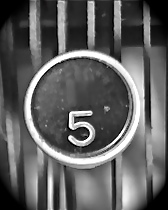5 HOT BOOKS: The Dark Forces that Gave Us Trump, How We Talk on Online, and More
/1. American Carnage: On the Front Lines of the Republican Civil War and the Rise of President Trump by Tim Alberta (Harper)
A simple question animates this fascinating book: How did Donald Trump get elected president of the United States? Alberta, chief political correspondent for Politico Magazine, responds with a deeply reported investigation into the transformation of the Republican Party. Alberta focuses on the wars between factions of the GOP and places them in the context of the social and economic gyrations and disruptions of the past decade. American Carnage, taking its title from Trump’s inaugural speech, clearly explains his appeal to America’s darker impulses and how evangelical support for the Republican Party and Trump, who clearly defies their moral principles, is very much transactional.
2. Because Internet: Understanding the New Rules of Language by Gretchen McCulloch (Riverhead)
For anyone who has ever wondered about emoijs, memes, and how email greetings expose a vast generational divide, this is the book for you. True to the tone on her podcast, “Lingthusiasm,” and her “Resident Linguist” column for Wired, McCulloch brings a joyful enthusiasm to her smart, engaging survey of how language has evolved in the digital age. From punctuation (!) to abbreviations (LOL to lol) to lengthening words (yesssssss), McCulloch charts the changing tides of words and language, recognizing the waves and swells and shows how they can be seen as enhancing communication rather than impoverishing it.
3. Lady in the Lake by Laura Lippman (William Morrow)
Inspired by an unsolved murder of a barmaid and secretary in June 1969, Lippman’s book is an ambitious, fully imagined social novel from more that a dozen points of view with illuminating perspectives on racial injustice, discrimination against women, and an ode to newspapers – evoking the feel of a newsroom, which she developed as the daughter of a newsman and her own earlier career as a reporter at the Baltimore Sun. Lippman entwines the stories of a bored housewife who becomes a newspaper reporter and an African-American cocktail waitress found in a lake whose death the journalist is determined to investigate, although no one else seems to care. With this engrossing and provocative novel, Lippman has clearly won a place on the bookshelf with writers like Gillian Flynn, and shown herself to have a knack for setting off firecrackers that expose deeply hidden social anxieties.
4. Chances Are … by Richard Russo (Knopf)
Russo, who has a pitch-perfect ear for the quiet angst of small-towns, particularly their regular guys, reunites three Vietnam-era friends in Martha’s Vineyard who are inextricably tied to a rebellious and glamorous female classmate whom they all had loved but who disappeared years before. Russo, who won a Pulitzer Prize for Empire Falls, often writes in a comedic register, but here he draws on his powers of empathy and keen understanding of the self-doubt and remorse that have plagued these men in different ways. Readers will discover his immense humanity, but he also infuses Chances Are … with a sense of suspense that provides a velocity and heft that make this, his 14th book, one of his best.
5. Three Women by Lisa Taddeo (Avid Reader Press)
Taddeo’s debut, dispatches from the front lines of the sex lives of three American women, is intended to reveal “female desire,” and this book, one of the most anticipated of the summer, has vaulted to the top of the national best-seller lists. It has been reported that Showtime has pounced on Three Women, planning to adapt it to a series, to focus on the three protagonists whose sex lives have been shaped by trauma and shame: a restaurant owner whose husband selects her sexual partners, a mother who turns to her high school boyfriend when her husband refuses physical affection and sexual attention, and a woman whose life was derailed after a sexual relationship with her high school teacher. Taddeo spent close to a decade working on the book, and which she views as a follow-up to Gay Talese’s Thy Neighbor’s Wife, published in 1980, from the female point of view.










